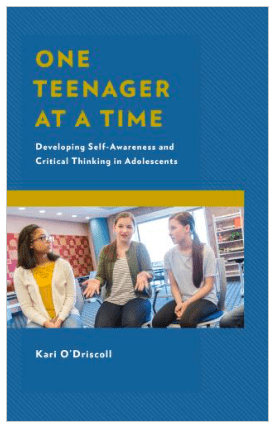What I hope students develop and strengthen after working with the self project curriculum

It may feel like it’s a bit late for me to be telling you about my goals for this work now, but better late than never, right? It turns out that there are a lot of ideas about the outcomes of SEL and what they ought to look like, but I suspect my thoughts deviate slightly from the norm. I am really not interested in behavior management or assimilation or “grading” students on their “performance” or demonstration of the identified goals of SEL. Because this work is really rooted in relationship, and because human beings learn best in community and thrive in social contexts, my hopes for individual students are much less “measurable” but no less important.
- I hope that this curriculum/this work helps students develop resilience, meaning that they are able to experience adversity in many different realms (work, school, personal relationships, life circumstances) and know that they have support, where to find it, and how to ask for it and receive it.
- I want students to develop the ability to form trusting relationships with others, know when it is safe to be vulnerable (and with whom), and know how and when to ask for help and support. Cultivating a network of people with the ability and willingness to offer help that is meaningful and substantial without any expectations is a key part of building resilience.
- This curriculum was designed to help students identify, strengthen, and claim their individual strengths in a way that feels natural and purposeful.
- Students who work through this curriculum will be able to meet challenges of all kinds with courage. That doesn’t mean they don’t have fear or the occasional doubts about themselves, but it does mean that they know they can ask for help if they need it, and that the outcome of being challenged is learning.
- I hope that students who engage in this work will learn to create and maintain healthy boundaries that allow them to be challenged, but not disrespected or harmed, and signal to themselves and the wider community that they have enough self-love to demand that they are treated with respect and reverence.
- I want this work to expand the capacity of young people to experience joy.
- Because this work is done in community, it should give students both opportunities to feel supported in community and know that they are vital to their community because of their unique voice.
- This work should also help ground students in a solid notion of who they are as an individual at their core, even as they grow and change.
Adults who take on the task of doing this work with students should keep these goals in mind and identify for themselves what it means to support students without co-opting their ideas and feelings for a different agenda, and understand that this work’s importance lies in creating a culture of interdependence, of community, of fostering a space where we can have conversations about difficult subjects without needing to come to a tidy conclusion.
Please reach out to me with questions about any of this. It is more vital now than ever that we begin to dig in to this work with adolescents.

